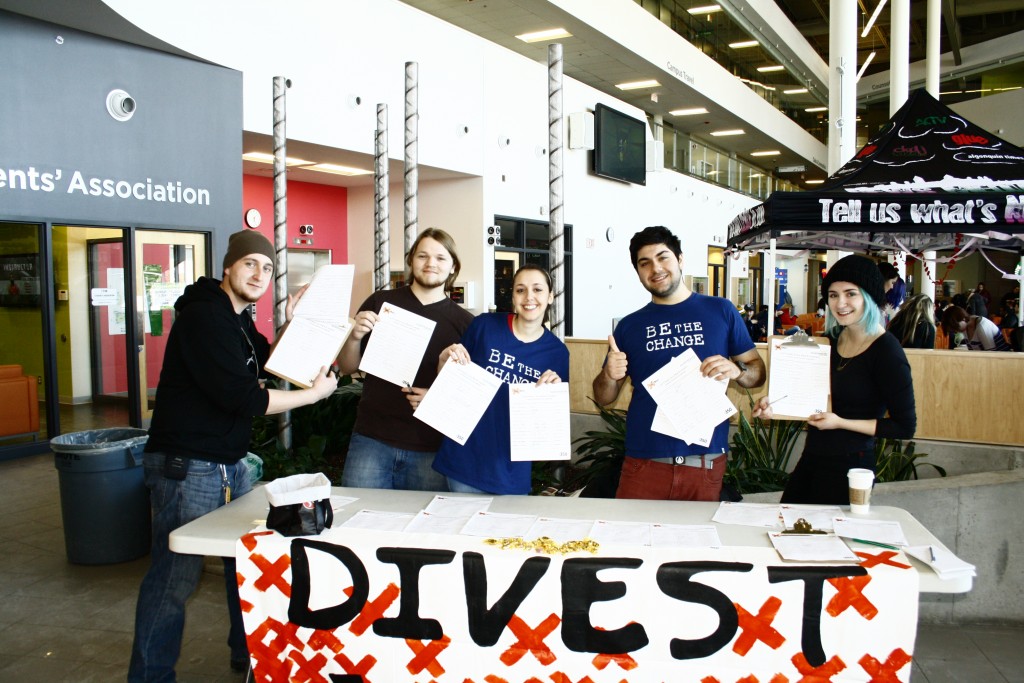
Climate change is destroying the earth, but a group of students are trying to fix that through the power of divestment.
Fossil fuels emit carbon dioxide when burned, which traps heat in the earth’s atmosphere.
This has contributed greatly to global warming and air quality deterioration.
Divestment is simply taking funds from fossil fuels and reinvesting them into alternative solutions.
“It’s a really big, powerful industry with a lot of lobbying power and that makes it really difficult for environmental policies to pass,” said Martyna Tomczynski, a member of the divestment group. 450 Global Divestment Day events, held on Feb. 13-14, took place in over 60 countries this year, the first year of the campaigns launch.
Around the world $50 billion of assets have been moved away from fossil fuels. By launching the Divestment Algonquin College campaign on Feb. 13, a group of over 20 students hope to encourage the college to stop investing in the fossil fuel industry and turn to renewable energy instead.
When the environmental studies students learned about the global movement in class, they wanted to get Algonquin involved.
“Once you learn about divestment, you want to be a part of it,” said Jon Baggs, a member responsible for the social media aspect of the campaign.
The group, formed in January, will show the Board of Directors and Algonquin faculty a multitude of signatures from both staff and students that are being collected to show the amount of support on the issue.
“It’s not even about the signatures, it’s just about advocacy,” said Baggs.
Many people aren’t educated on fossil fuels and the impact they have on our lives, which gives the fossil fuel industry the opportunity to take advantage.
“Imagine for a second, there are trillions and trillions of dollars in the fossil fuel industry,” said Baggs. “If we take that and invest a huge amount of money into alternative solutions, we take that monetary power out of the hands of people who don’t care about our interests at all and put it into sustainable development that does have our interests at the forefront of their development. That is a future we need to live in.”


